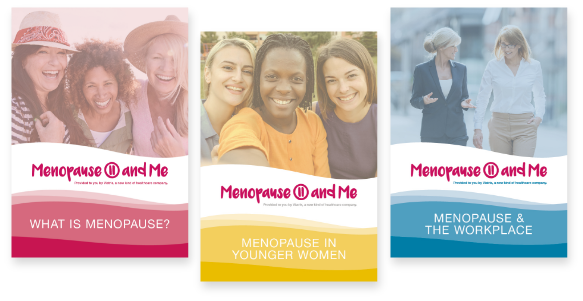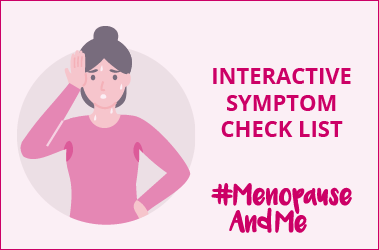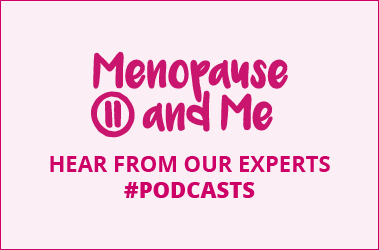
Post-menopause
The time of a woman’s life following menopause is called postmenopause. A woman is considered post-menopausal if she has not had her period for an entire year (12 months).
At this point a woman‘s transition into her non-child-bearing years is complete, post-menopause lasts the rest of a woman’s life.
During this time, many of the bothersome symptoms a woman may have experienced before menopause gradually decrease. However, the permanent end of a woman’s period doesn’t necessarily mean the end of bothersome menopause symptoms.
For about half of women, menopause symptoms will typically
last for about seven years after their last period.
For 10% of women, symptoms can continue for up to 12 years.
Along with the physical changes that occur after the menopause, post-menopausal women are at increased risk of a number of health conditions, such as osteoporosis and heart disease.
YOUR POST-MENOPAUSAL HEALTH
As you get older, your ovaries start producing less of the hormone oestrogen. As a result of lower oestrogen levels, postmenopausal women are at increased risk of a number of health conditions such as osteoporosis and heart disease. Medication such as hormone replacement therapy (HRT) and healthy lifestyle changes can help to reduce the risk of these conditions. Every woman is different.
DO I STILL NEED TO SEE MY DOCTOR NOW THAT I AM POST-MENOPAUSAL?
Even if you are post-menopausal, getting regular check-ups and preventative screening tests are among the most important things you can do for yourself. How often you need check-ups will depend on your health history. Talk to your healthcare professional about your individual needs.
Attend your regular mammography and blood tests, which will screen for diabetes and high cholesterol. Osteoporosis is more common in women after the menopause and risk factors include, a close relative with osteoporosis, smoking and a slender build. Speak to your healthcare professional, if you are worried about your bone health.
Mid-life can be an exciting period in your life. It is a time of change – not only physical but also emotional as well. Consider this a time of opportunity and promise – a chance to make healthy changes that will help you get the most out of your life!
So don’t hold on to the past! Explore your world, and expand your horizons. Go on! Get out there and look forward to new adventures.
If you feel you are struggling with any aspect of your menopause journey, fill out My symptom checklist and ask your GP for advice and help. You are not alone. Whatever the symptoms, help is available for you.
Please select where you believe you are on your menopause journey
Early Menopause
Peri menopause

Want to know more about the menopause?
Request a free copy of our guidebooks
WHAT IS MENOPAUSE?
MENOPAUSE IN YOUNGER WOMEN
MENOPAUSE & THE WORKPLACE
Request hereRecommended for you
Job Code: NON-2022-0111
Date of preparation: February 2022











